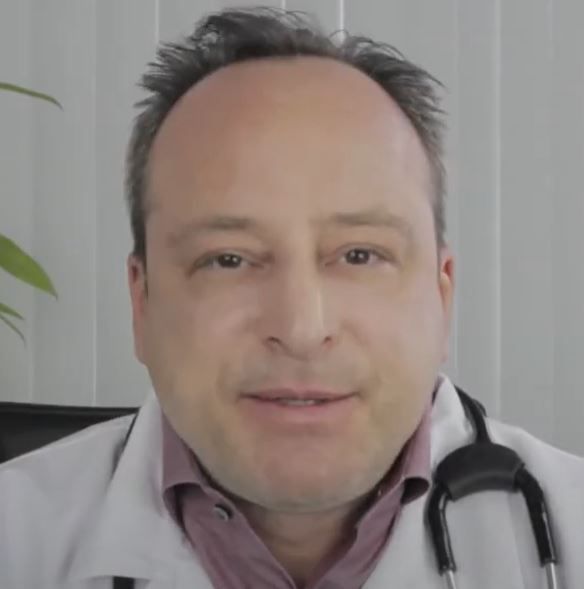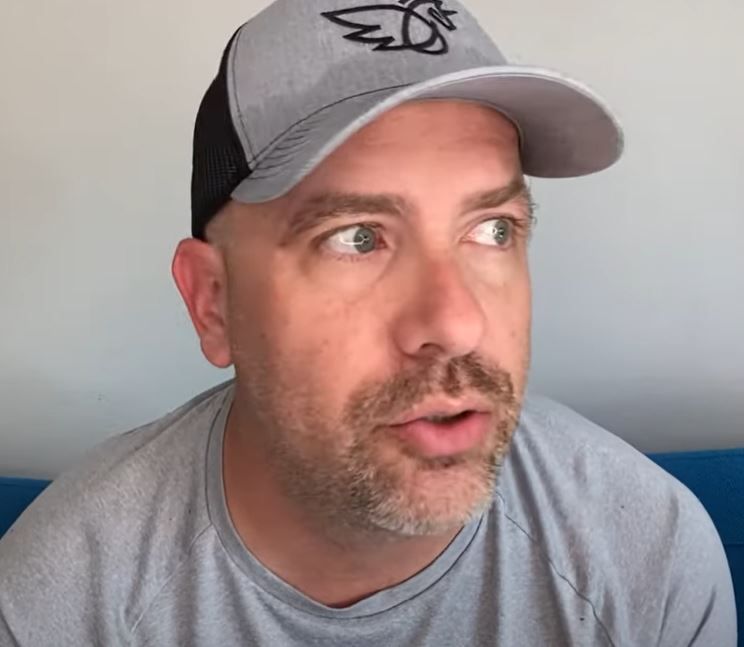Cocaine Drug Rehab in Orange County, CA: Expert Treatment Options for Recovery
Struggling with cocaine addiction? Start your road to recovery today
Cocaine addiction is a significant public health issue both in Orange County, CA, and across the United States. Rehab centers such as Orange County Drug and Alcohol Rehab Center offer specialized treatment programs designed to address the unique needs of each individual. In Orange County, the prevalence of cocaine-related incidents has been on the rise over the past decade. According to the Orange County Health Care Agency, cocaine is among the top substances leading to emergency department visits and admissions to rehab facilities in the county. In 2020, there were over 13,000 drug/alcohol overdose emergency department visits in Orange County, with a significant portion attributed to cocaine use (Source: Orange County Health Care Agency).
Data from the California Department of Public Health indicates that hundreds of cocaine-related emergency department visits are reported annually. Specifically, the California Department of Public Health reported that stimulant-related emergency department visits, including those for cocaine, have been steadily increasing since 2012 (Source: California Department of Public Health).
Additionally, the California Department of Health Care Services notes that thousands of individuals in Orange County seek help for cocaine addiction through county-funded programs each year. In 2023, it was reported that more than 5,500 hospitalizations occurred annually in Orange County due to drug or alcohol overdoses, highlighting the critical need for effective addiction treatment services (Source: Pacific Sands Recovery).
OC Drug and Alcohol Rehab center focuses on teaching coping skills that can help patients manage their lives free from addiction. We use individual therapy and support groups to create a lasting recovery for their patients. By seeking the right help, those suffering from cocaine addiction can take the crucial first step toward regaining control over their lives.
Real Life Effects of Cocaine Use after 25 Years

Amira Dominguez Guerra shared how 25 years of cocaine use deformed her facial features. Regular exposure to cocaine deteriorated her nasal septum. It got worse to the point that she no longer had a septum, and her nose was completely flat. Her cocaine addiction also affected her family relationships.
Can you Recover from Cocaine Addiction?

This Doctor explains, “Yes, you can absolutely recover from cocaine abuse. While cocaine can have harmful effects on the body, younger, healthier individuals often see reversible damage if they stop using and commit to recovery. It’s important to understand that each use increases the risk of serious complications like stroke, heart attack, and psychosis. However, if someone quits and maintains long-term sobriety, the body can often heal from the short-term effects.
The real challenge is the mind. Recovery isn’t just about abstinence; it’s about learning to cope with life stressors and cravings. A complete recovery is possible through a quality program that focuses on these aspects. As someone in recovery myself, I know it’s a daily process. I choose to stay sober today and make the best decisions I can. So yes, people can recover from cocaine abuse, but it takes commitment and ongoing effort.”
Need Help with Making Treatment Possible?
If you're concerned about the cost of care or have limited insurance coverage, we accept a wide range of insurance providers to help ensure you receive the care you need, no matter your financial circumstances.
Find out how we can assist you today.
What are the Different Types of Cocaine Rehab Programs?
Medical Detox
The first step in most cocaine rehab programs is detoxification, where the body is cleansed of cocaine. This process is often supervised by medical professionals to manage withdrawal symptoms and ensure patient safety.
Behavioral Therapy
Behavioral therapies, such as Cognitive Behavioral Therapy (CBT), are commonly used in cocaine rehab programs. These therapies help patients understand the underlying reasons for their addiction and develop coping strategies to prevent relapse. Programs like those at The Hope House emphasize the importance of behavioral therapy in long-term recovery.
Support Groups
Support groups provide a community of individuals who are also in recovery. These groups offer emotional support and shared experiences, which can be vital for maintaining sobriety. Many rehab centers integrate support group meetings into their treatment plans.
Holistic Approaches
Our holistic treatment at OC Rehab Center includes engaging activities like yoga, meditation, and nutritional counseling. These are aimed at healing the mind, body, and spirit.
Specialized Programs
There are also specialized rehab programs tailored to specific demographics, such as gender-specific programs or those for young adults. For example, OC Rehab Center offers programs specifically designed to meet the unique needs of different populations.
A Deeper Dive:
What is Cocaine Addiction?
Cocaine addiction is a severe health problem marked by compulsive drug use. It affects the brain and body, leading to various mental and physical health issues. Understanding its impact can help in recognizing the signs and getting the right treatment.
Cocaine influences the brain's reward system. When used, it increases levels of dopamine, a neurotransmitter linked to pleasure and euphoria. This surge creates a temporary feeling of intense happiness. However, repeated use can alter brain function.
The nervous system also becomes overly stimulated, raising heart rates and blood pressure. Over time, the brain adapts, requiring more cocaine to achieve the same effect, leading to tolerance. This cycle perpetuates addiction and makes quitting difficult.
Identifying cocaine addiction involves noting changes in behavior and physical health. Individuals often show signs of intense cravings and compulsive drug-seeking actions. They may prioritize cocaine use over other responsibilities or interests.
Other signs include increased heart rate, anxiety, and restlessness. Changes in social circles and engagement in risky behaviors can also indicate addiction. Recognizing these signs early can lead to timely intervention and treatment.
Prolonged cocaine use can lead to severe health issues. It increases the risk of heart attack and stroke due to its strain on the heart and blood vessels. Long-term users may also experience mental health issues such as anxiety and paranoia.
Other risks include respiratory problems, as cocaine can damage the nasal passages when snorted. Additionally, the chances of developing tolerance and dependence are high, making it harder to stop using the drug. Immediate intervention is essential to prevent these long-term effects.
Eric Zink Shares His Story
Famous youtuber shared his experience being an ex cocaine addict

Eric Zink, a well-known YouTuber with 200k subscribers, shares his personal journey of becoming a cocaine addict. His struggle with substance abuse began with alcohol, which was prevalent in his family, leading him to start drinking at the age of 14. Unlike alcohol, cocaine addiction was unique to him, as no one in his family had a history of drug addiction.
Eric's first encounter with cocaine occurred in his early 20s during a difficult period involving a divorce. The initial experience with cocaine made him feel invincible, boosting his ego, confidence, and energy. Although he did not become immediately addicted, this marked a pivotal moment where he faced a crossroads between avoiding or succumbing to addiction.
How He Became Addicted to Cocaine
Eric's addiction to cocaine developed gradually. Initially, he was able to use the drug sparingly, but over time, it began to occupy his thoughts more frequently. He describes how addiction involves an obsessive need for the substance, a pattern he recognized in himself as his use of cocaine increased. Despite attempts to control and budget his use, he eventually started using cocaine daily, constantly chasing the high he experienced the first time. This obsessive behavior signaled the transition from casual use to full-blown addiction.
How Eric Zink is Doing Today
Today, Eric Zink has been sober for five years but still fears the drug due to its lingering temptation. He emphasizes the importance of support and openly admitting his addiction as crucial steps in his recovery journey. Eric acknowledges that cocaine remains a dangerous and obsessive drug for him, one he must continuously resist. He offers encouragement to others struggling with addiction, stressing that recovery is possible with determination and support. Eric also provides resources for Narcotics Anonymous (NA) and Alcoholics Anonymous (AA) for those seeking help.
How Much Does Cocaine Drug Rehab Cost?
Rehab costs for cocaine addiction in Orange County, CA, can range from a few thousand dollars to over $15,000. Short-term programs, typically lasting 30 days, might cost between $4,000 and $10,000. Long-term treatments, such as a 90-day program, can go up to $15,000 or more.
Residential treatment, where patients live at the facility, tends to be more expensive than outpatient programs. Outpatient treatments range from $1,000 to $5,000 for a three-month program. Additional services, like counseling and medication, can also influence the overall cost.
Working with Insurance Providers
Many insurance providers cover some or all costs associated with drug rehab. Coverage varies based on the provider and the specific insurance plan. Major providers like Blue Cross Blue Shield, Aetna, and UnitedHealthcare offer plans that cover rehab services.
Reaching out to the insurance company directly or speaking with a rehab center's admissions office can provide clarity on what costs will be covered and the options available for those seeking treatment. Contact us now.
FAQs
How long does drug and alcohol rehab last?
The length of a rehab stay varies. Most inpatient programs last at least 30 days, but some may be longer.
What treatments are available for cocaine addiction?
Treatments include detoxification, medication-assisted treatment (MAT), and inpatient residential programs. These options provide a mix of medical supervision and support.
Is relapse common during recovery?
There is always a risk of relapse, but with proper treatment and commitment, many people achieve long-term recovery.
Can medications help in the treatment of cocaine addiction?
Yes, medication-assisted treatment (MAT) uses FDA-approved medications to help reduce withdrawal symptoms and cravings.
What should I expect during inpatient treatment?
Inpatient treatment typically involves a structured environment where patients receive 24/7 care, counseling, and support. Programs can include a mix of individual and group therapy.

